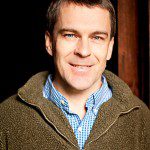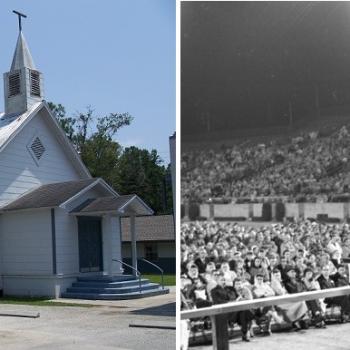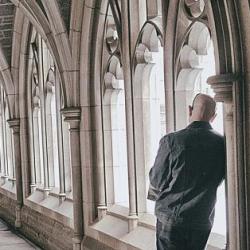by Karl E. Johnson
On April 27th, 1865 New York’s Governor Fenton signed a bill establishing Cornell University as the state’s land grant institution, which, from its founding, has been co-ed and “non-sectarian.” As universities across the nation continue to wrestle with what range of religious belief and behavior should be tolerated on campus, this week’s sesquicentennial celebration at Cornell is a good time not only to celebrate (“Keeping the faith in a nonsectarian way”) but also to critically reflect upon the 19th-century notion of non-sectarianism.
“The principle [sic] danger… encountered by the friends of education,” wrote Ezra Cornell, “and by all lovers of true liberty is that which may arise from sectarian strife.”Cornell co-founder and inaugural president A.D. White similarly advocated for “non-sectarian science.” Religion’s “interference” with science, he said, always and everywhere results in “direst evils,” while science’s interference with religion invariably results in good.
But White was wrong. He was wrong about the past—no educated person believed the world was flat at the time of Columbus; medieval Christianity served as a bridge, not a barrier, to modern science; and so on. And he was wrong about the future—he predicted that science would generate consensus in matters of morality and religion. “The really puzzling historical problem,” says historian Mark Noll, “is how any credibility at all still clings to the notion of warfare between Science and Theology.”
Like the warfare metaphor, the ideal of non-sectarianism is also problematic.
The bill that Governor Fenton signed, drafted by then-senator White, affirmed “persons of every religious denomination, or of no religious denomination shall be equally eligible to all offices and appointments.” Likewise, Cornell stated “all students must be left free to worship God, as their conscience shall dictate.” So far, so good—this aspect of non-sectarianism is a step forward for civilization.
But non-sectarianism also has a dark side. Far from facilitating robust religious pluralism, the ethos of non-sectarianism often assumes that religion is (or ought to be) a merely private affair, thereby requiring students and scholars to check their religious identity at the classroom door. For all the talk of a supposed conflict between science and religion, the enduring problem today is poignant in the more value-laden humanities and social sciences, where secular ways of thinking about meaning, value, and purpose are privileged over religious ways of thinking. To paraphrase Mr. Cornell, we might say that the principal danger encountered by friends of education and lovers of liberty now arises from campaigns to eliminate any and all “sectarian strife.”
This shouldn’t be altogether surprising—glimpses of the problem were apparent from the beginning. When A.D. White spoke of “a conflict between two epochs in the evolution of human thought—the theological and the scientific,” the message was clear: people of faith are primitive. And when Ezra Cornell thundered “From these halls, sectarianism must be forever excluded,” it didn’t occur to him that nobody considers themselves to be sectarian. The exclusion of “sectarianism” thus comes down to the privileging of some persons and perspectives over others.
All of which is to say: non-sectarianism has not always been a force for inclusion.
In some respects, we have come a long way since 1865. Following World War I, we gave up on science as a source of moral and religious consensus. Since 9/11, sociologists have largely abandoned the secularization thesis—the idea that as societies modernize they inevitably become less religious. Fundamentalism, at home and abroad, suggests that pressuring people to privatize their faith is itself a form of violence that usually provokes an undesirable reaction.
Finally, following postmodernism, we are learning that we are all sectarians of sorts—that there is no single, objective “view from nowhere.” (As G.K. Chesterton once put it, “there are only two kinds of people; those who accept dogma and know it, and those who accept dogma and don’t know it.”) At least I hope we are learning this.
As Cornell celebrates 150 years, my hope is that we can finally let go of 19th-century ways of thinking about religious pluralism, and move toward a more robust, multi-faith pluralism in which students and scholars are free to pursue the life of the mind in the fullness of their humanity. A good place to start would be to acknowledge the non-neutrality of non-sectarianism.
 Karl E. Johnson, Ph.D., is Executive Director of Chesterton House: A Center for Christian Studies at Cornell University.
Karl E. Johnson, Ph.D., is Executive Director of Chesterton House: A Center for Christian Studies at Cornell University.













